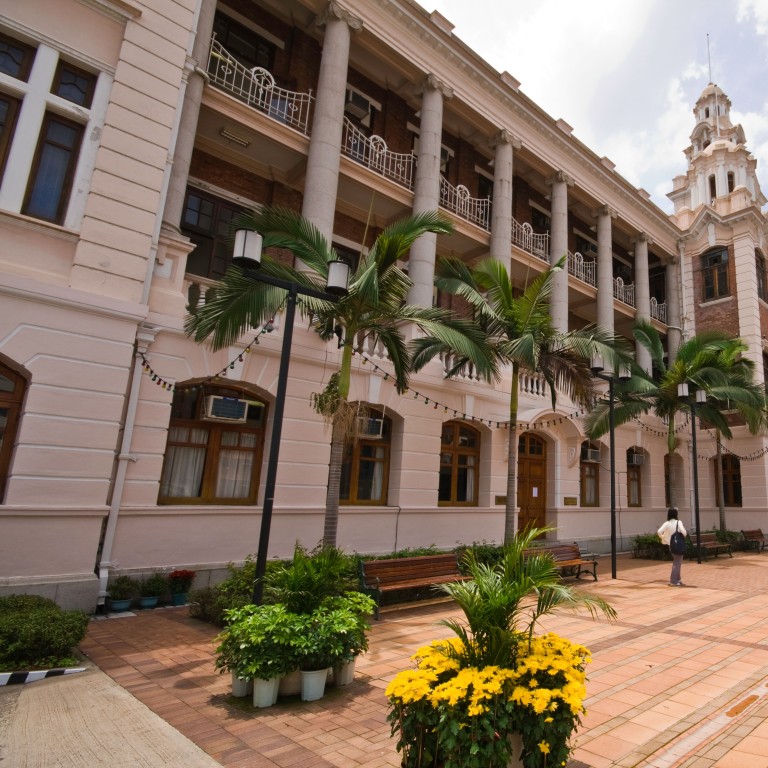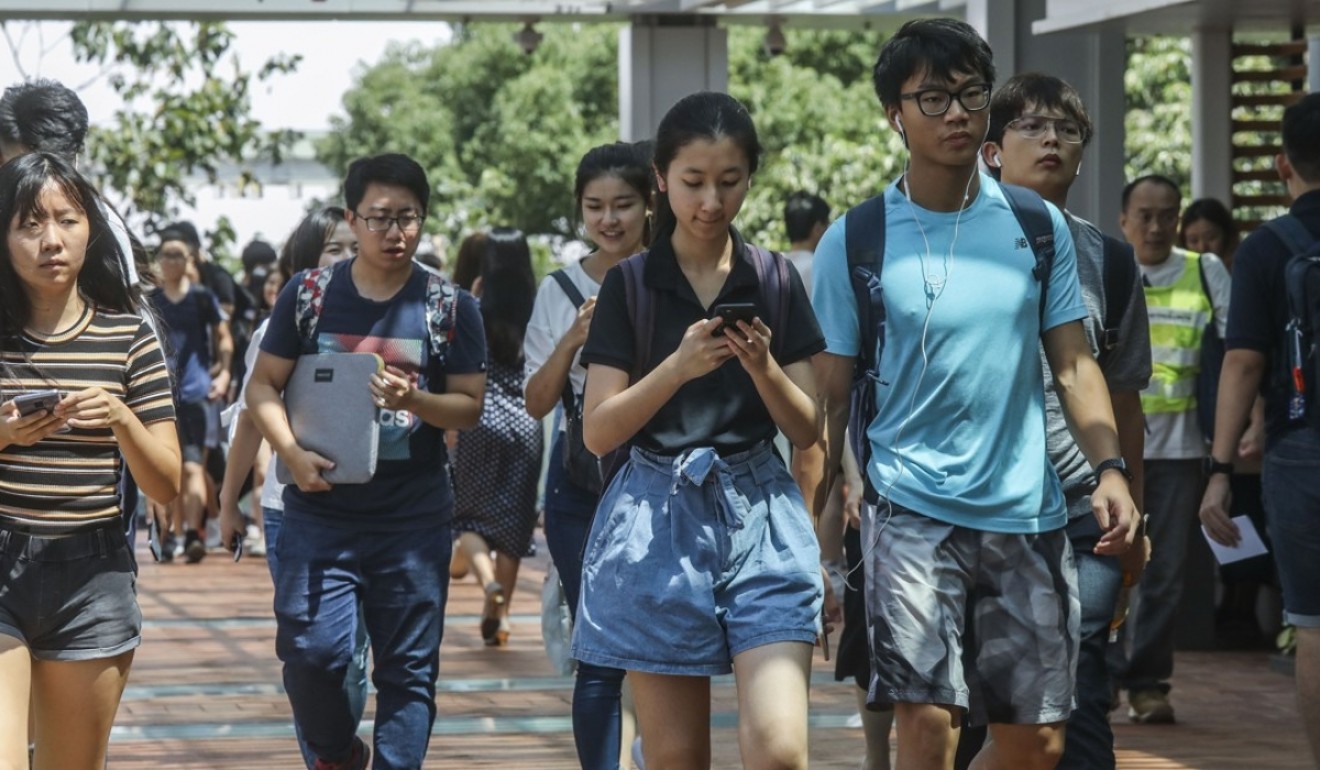
‘I want to protect other students’: Malaysian woman in University of Hong Kong sex harassment case on why she spoke up on Facebook
- Former postgraduate student at HKU said she went public with allegations of harassment by a tutor to ensure safety of other students was ‘not jeopardised’
- The tutor, a married man, stopped teaching some time after the woman complained about him to the university, but has begun tutoring at HKU again, she said
The woman, who attended HKU between 2015 and last year, and who only wanted to be known as “L”, spoke to the South China Morning Post and elaborated on the experience she had first posted about on Facebook on May 5.
HKU said it was investigating the allegations in the Facebook post, which had been shared 277 times.
L, who is now working in Malaysia but declined to reveal more personal details, said: “There was relief and catharsis in writing my story but that’s not to say reliving the experience was in any way pleasant.
“But I am seeking redress.”
According to her, the married tutor who was teaching part-time at Prince Philip Dental Hospital had made inappropriate contact with her on multiple occasions between 2015 and 2017. He touched her back, arm and shoulder despite her brushing his hands away, and leered at her chest.
The man had, she claimed, added her on Snapchat after taking her phone and approving his own request. He would ask why she was not wearing a skirt or dress as “he really liked it on me”.
Sex harassment claims by postgraduate sparks HKU investigation
“During my first year, he called me by my Cantonese name,” she said. “When I told him that I would not respond to that name, he said that he would not teach or answer my questions. I felt helpless and powerless – I couldn’t sleep, had no appetite, cried myself to sleep.”
L said she first approached her course director in February 2017 to make a complaint.
“He was empathetic but couldn’t grasp the idea of why I felt upset. He giggled, and said he ‘wouldn’t call this harassment’,” she recounted.
I felt helpless and powerless – I couldn’t sleep, had no appetite, cried myself to sleep.
The course director gave L the option of making an official complaint through the university, or allowing him to handle it. She was told that if she went through official channels, HKU would conduct a thorough investigation that would ultimately identify her as the complainant.
Believing at that point that “things would go smoother” if the course director handled it discreetly, she agreed.
The tutor was subsequently redeployed to teach undergraduates and some time later, he stopped teaching altogether. But to her horror, they bumped into each other at a conference later in 2017.
“He still talked to me and sat next to me,” the woman recalled. “I emailed my course director asking him to tell him not to approach me and didn’t receive a reply. Later I discovered this tutor hadn’t been told why he had been redeployed – they had just told him it was a resourcing issue. Shouldn’t he be told what he did wrong?”

Earlier this year, L said she was shocked to discover the tutor had started teaching at HKU again.
“To let him back into the faculty after I have left, to jeopardise the safety of other female students, shows how lightly HKU has taken this matter,” she said.
Singapore student calls for tougher action after NUS peeping Tom incident
When asked for an update on the recent allegations, an HKU spokesperson replied by e-mail to say the university had “made a lot of efforts for the past years” in its policy, procedures and practices to ensure equal opportunities and prevent discrimination and harassment.
Its Equal Opportunity (EO) unit that handles harassment complaints, and other university departments, had also organised “awareness programmes, training sessions, exhibitions for staff and students on matters of equal opportunities and handling of complaints and enquiries”, the e-mail said.
But another woman, who only wanted to be known as “A”, told the Post last week that a sexual harassment complaint she made against a faculty supervisor at HKU had met with “multiple obstructions”.
By her account, the entire process took more than a year and the case was passed from the EO unit to Human Resources, where the staff member processing the case said it was “weak” compared to other cases where girls had been “actually touched”. The faculty supervisor had hired lawyers to assist him during the university investigation.

A said she had been reassured by EO staff that if any abuse of power was found, her supervisor’s chances of receiving tenure would be affected.
But she was dissatisfied with how her complaint was ultimately handled. Asked to prepare “proposals” for improved behaviour from the faculty member, she made suggestions such as keeping his office door open during individual student meetings.
“There was literally no time limit for [him] to send his response,” she said. “After weeks of agonising waiting, he sent a reply basically refusing all my proposals.”
She began to feel he was “rejecting all my proposals, regardless of their reasonableness and leniency, just because he could. There was literally no authority to pressure him.”
According to her, HR refused to get involved, saying they were simply “facilitators”.
After restarting the EO procedure, A was told the man’s lawyers had suggested a settlement, which she declined. An EO Committee held several hearings but A was told they could not substantiate whether her former supervisor’s actions were of a sexual nature or had sexual overtones, despite acknowledging the actions had “come very close to something they called the ‘threshold of sexual harassment’.”
Opinion: Sexual harassment is the norm at Asian universities. This is a wake-up call
Even after acknowledging she had been harassed and his actions were “highly inappropriate, disturbing, and harassing”, A said only two recommendations were made: requesting the department head monitor the man to ensure no non-work messages were sent over WhatsApp, and to educate all staff and establish guidelines for what constituted inappropriate action by supervisors towards students.
“It’s not realistic,” A said. “How can the department head constantly babysit him and check his personal WhatsApp habits? What’s to stop him from sending private messages to students and asking them to keep the conversations a secret?
“What appalls me most about this outcome is not the fact that ‘sexual overtones’ could not be substantiated. It’s the fact that the EO clearly acknowledged ... inappropriate behaviour from the respondent during the period I was under his supervision, yet they were perfectly willing to allow him to continue supervising other students at HKU.”
A and L said they felt the way in which HKU addressed harassment complaints risked forcing students to keep silent about being victimised.
A called for a better system to protect vulnerable students, saying one’s university education should have more “good memories than bad”.
“I can only hope that HKU recognises the shortcomings in their internal investigation system, and takes the necessary steps to address and fix these issues,” she said. “Sweeping problems under the rug until the voices of victims die down is not the action of a respectable institute, but acknowledging shortcomings and taking measures to improve is.”

